Species in the section Campylia.
Flower petals can be pink to nearly white, with darker veins on upper petals.
Leaves more leatherly than P. ovale.
(Grown from seed).
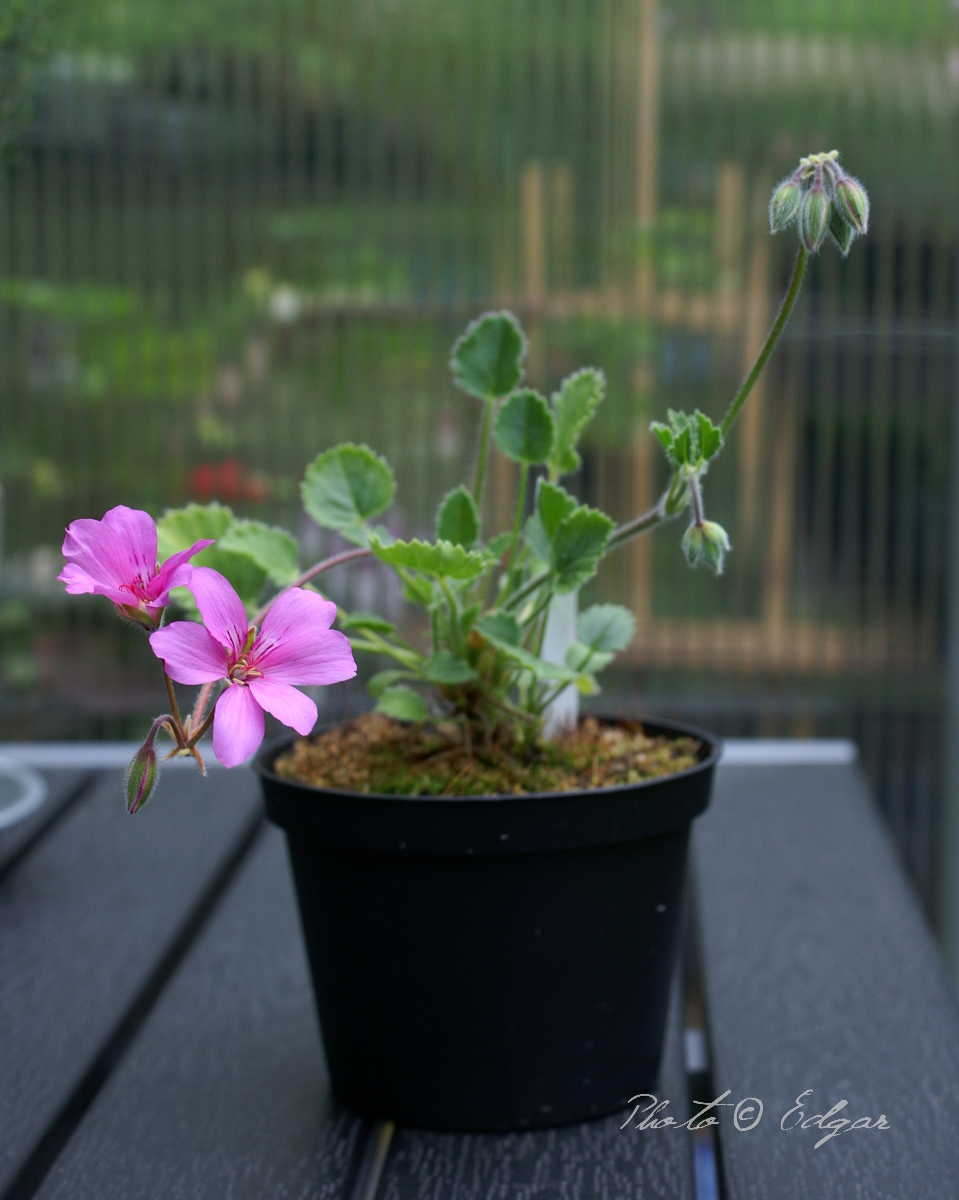
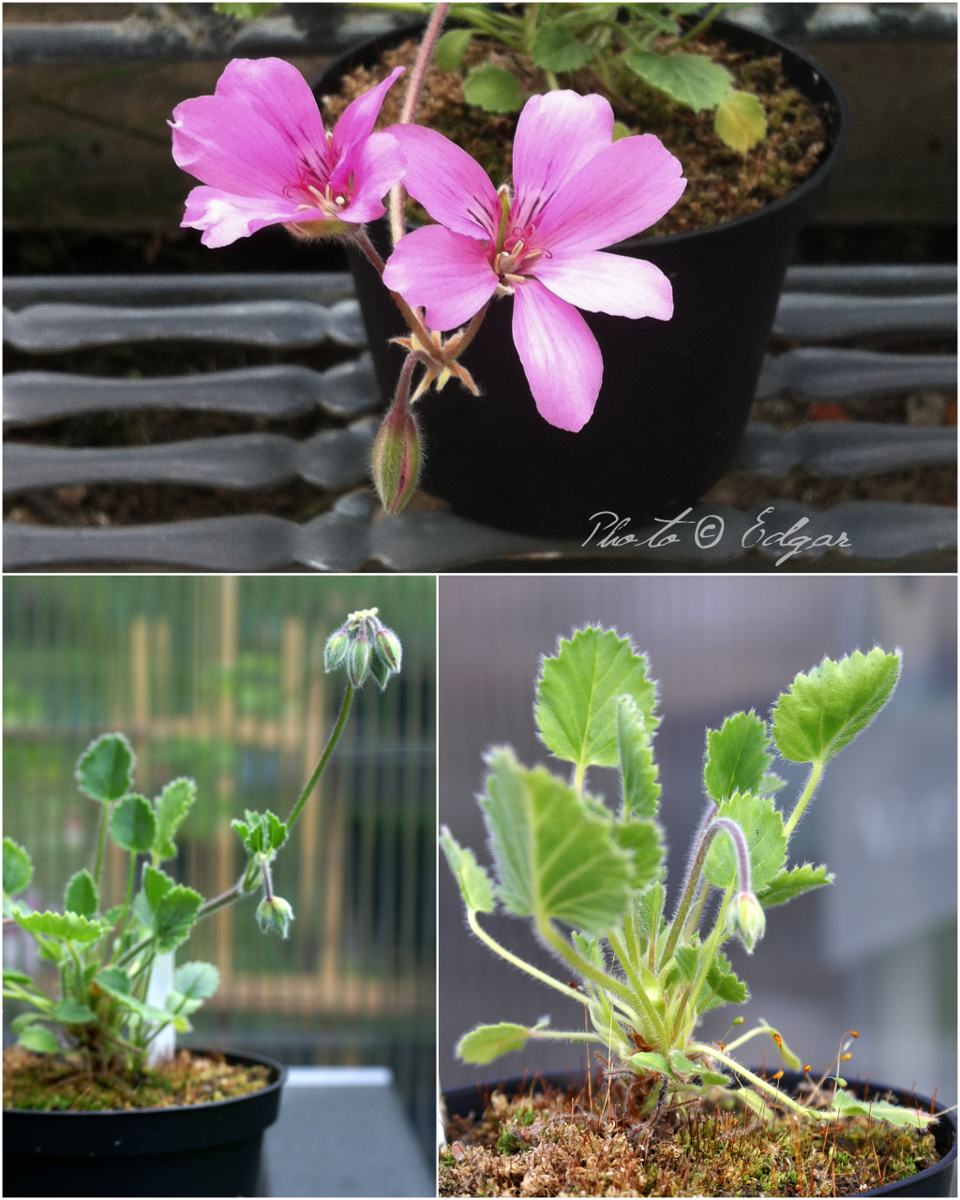

Species in the section Campylia.
Flower petals can be pink to nearly white, with darker veins on upper petals.
Leaves more leatherly than P. ovale.
(Grown from seed).


My collection at the moment of species and hybrids of section Campylia.
P. tricolor above, and white form of P. tricolor below
Hybrid of P. ovale x P. tricolor – originates from seeds from South Africa around 2007.
‘Dreamland’ with variegated leaves – large flowers similar to ‘Splendide’. Introduced around 2012.
‘Renate Parsley’ has smaller flowers. Fibrex Nursery, UK 1996.
‘Archibald’ – hybrid of ‘Splendide’ x P. ovale ssp hyalinum, 2011.
Two of my hybrids from 2020; the left one with small flowers is ‘Jace’ – a seedling of P. tricolor white form. And the one to the right with larger flowers is ‘Keanu’ – a seedling of ‘Splendide’
Below are some photos of my collection back in 2013.
One of my hybrids that I haven’t kept is ‘Baldric’ (‘Renate Parsley’ x P. ovale ssp. hyalinum).
‘White Splendide’ I don’t know the origin of, but I hope to get it back in my collection.
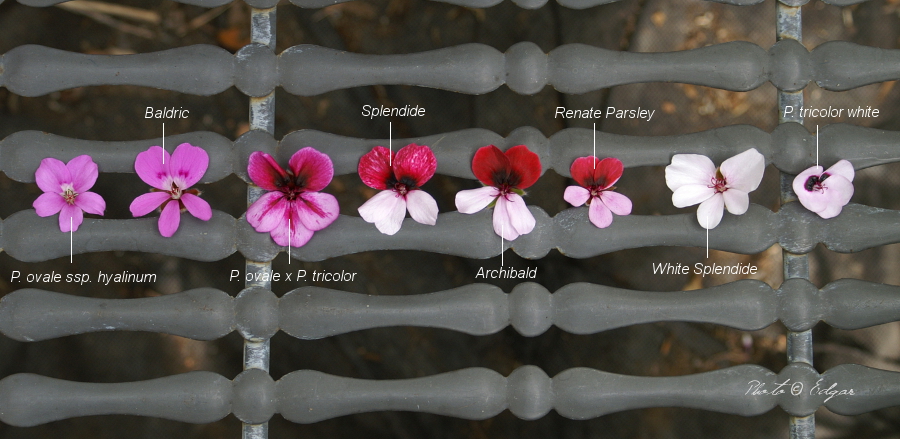

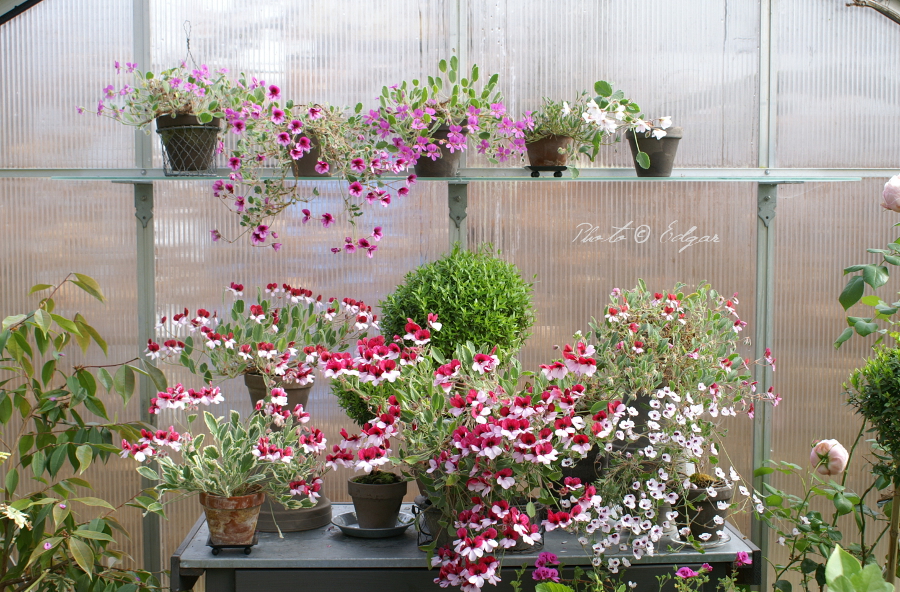
P. coronopifolium belongs to the section Campylia.
Here a white flowering form of P. coronopifolium grown from seed. (The flowers usually are pink to purple).
The leaves are thick and leathery.
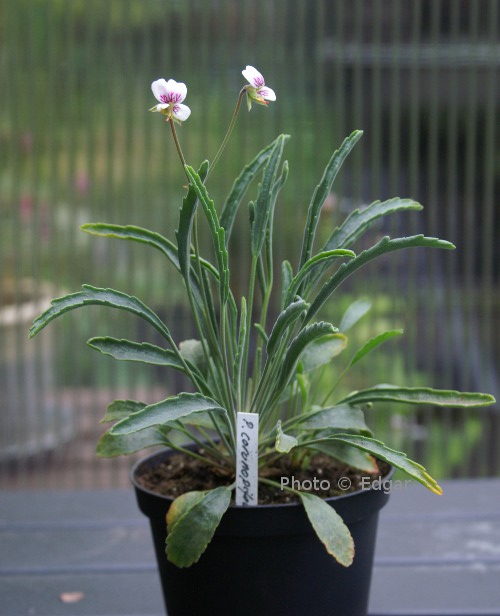
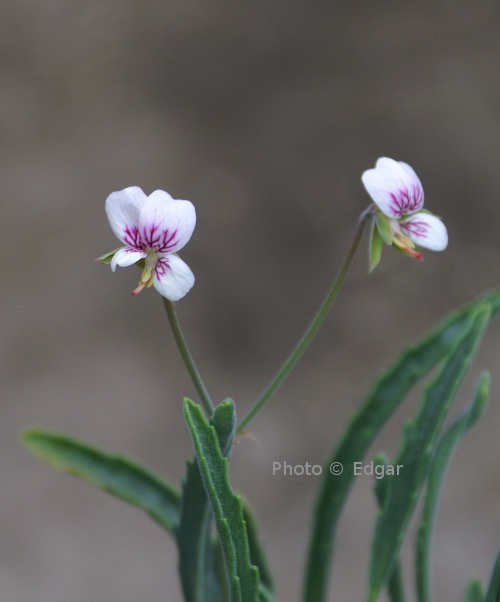
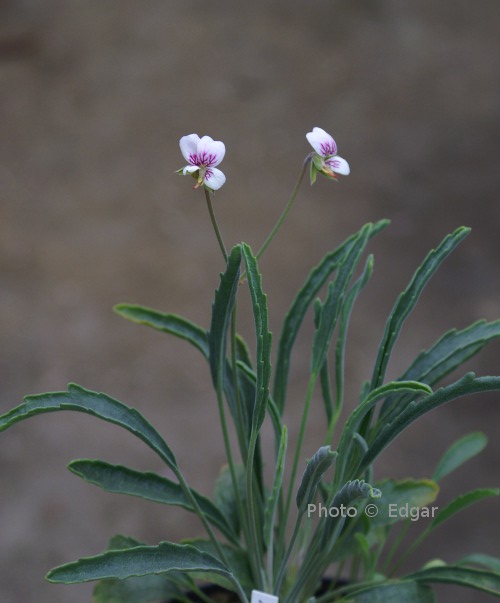
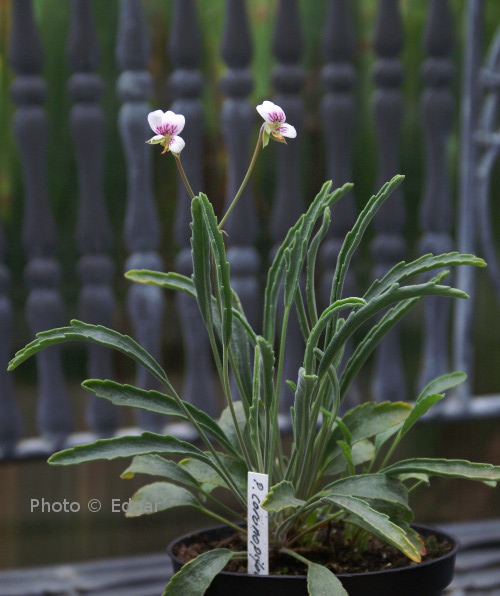
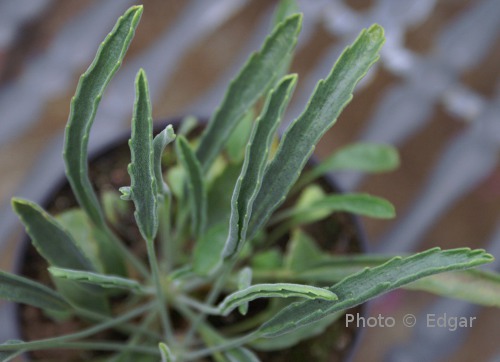
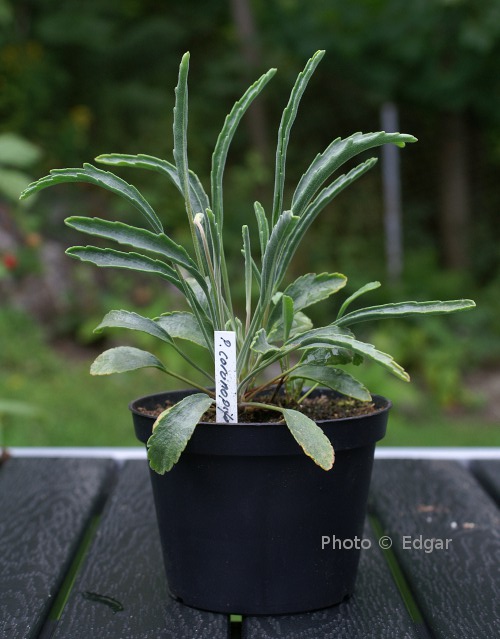
Section Campylia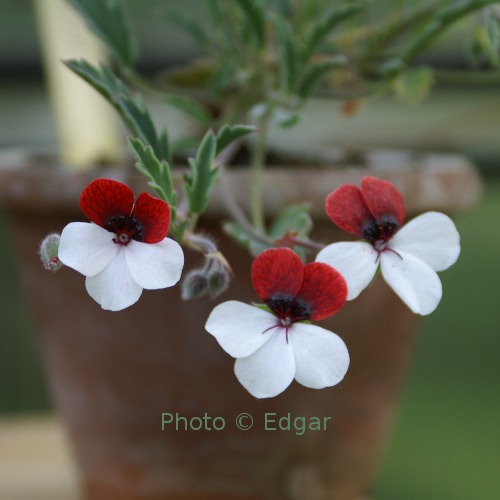
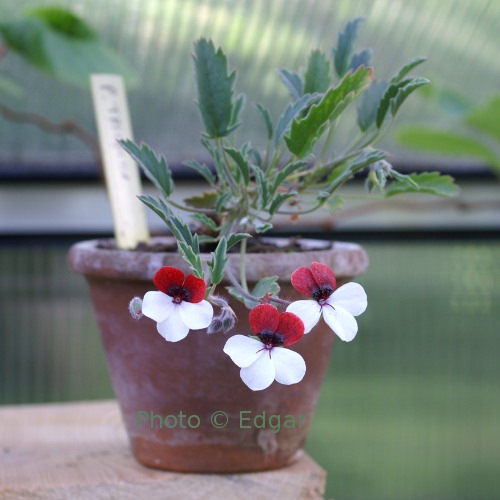
Pelargonium species native to south-western Cape Province, SA.
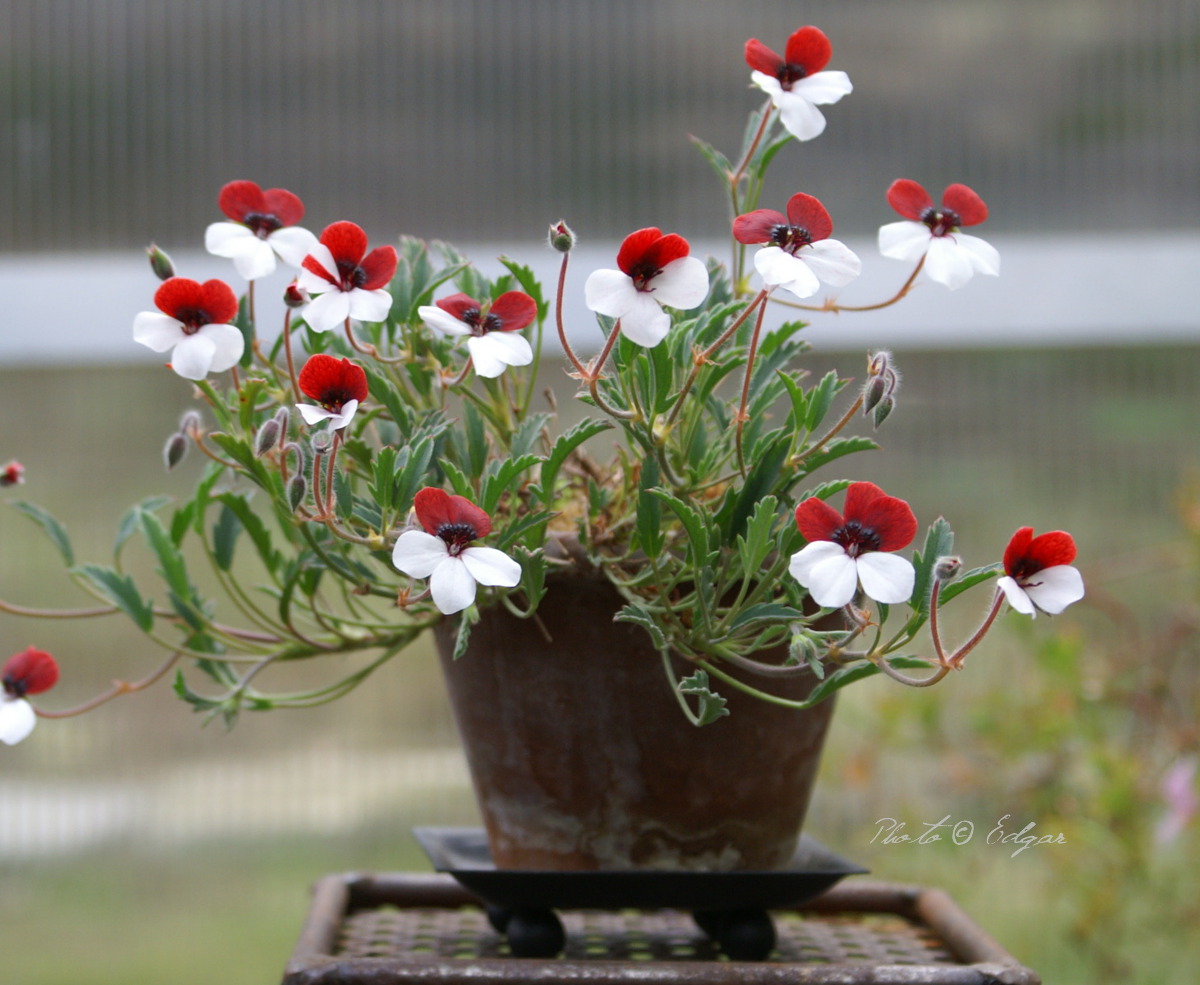
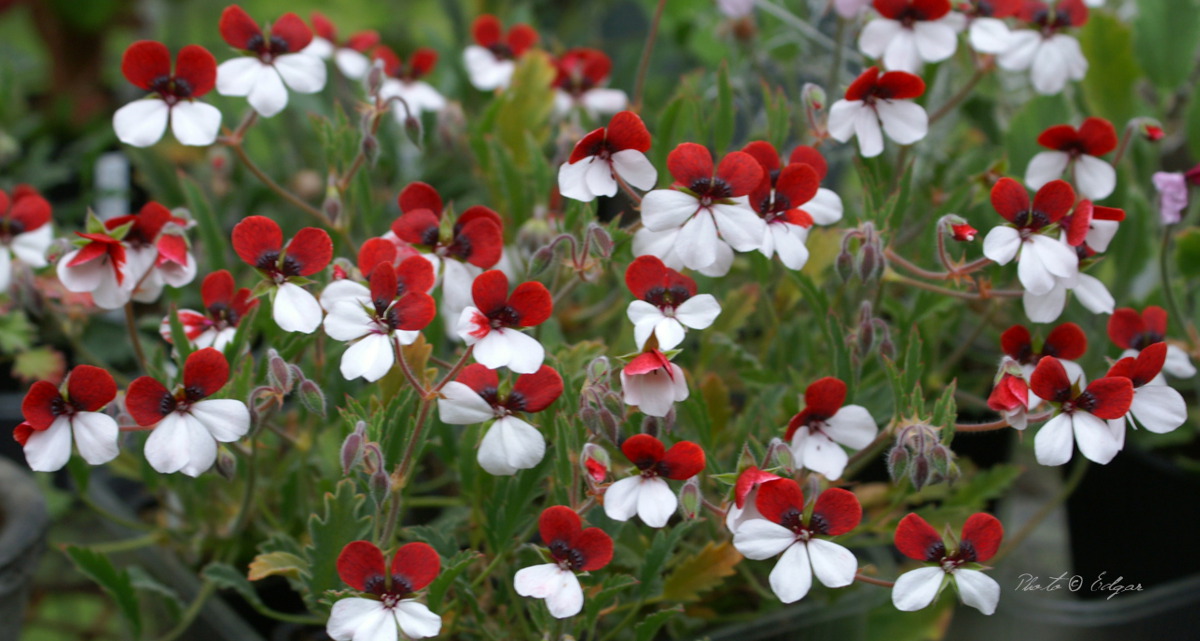
P. tricolor has narrow leaves. The smaller ones to the left are from the flower branches, and the ones to the right are from the main branches.
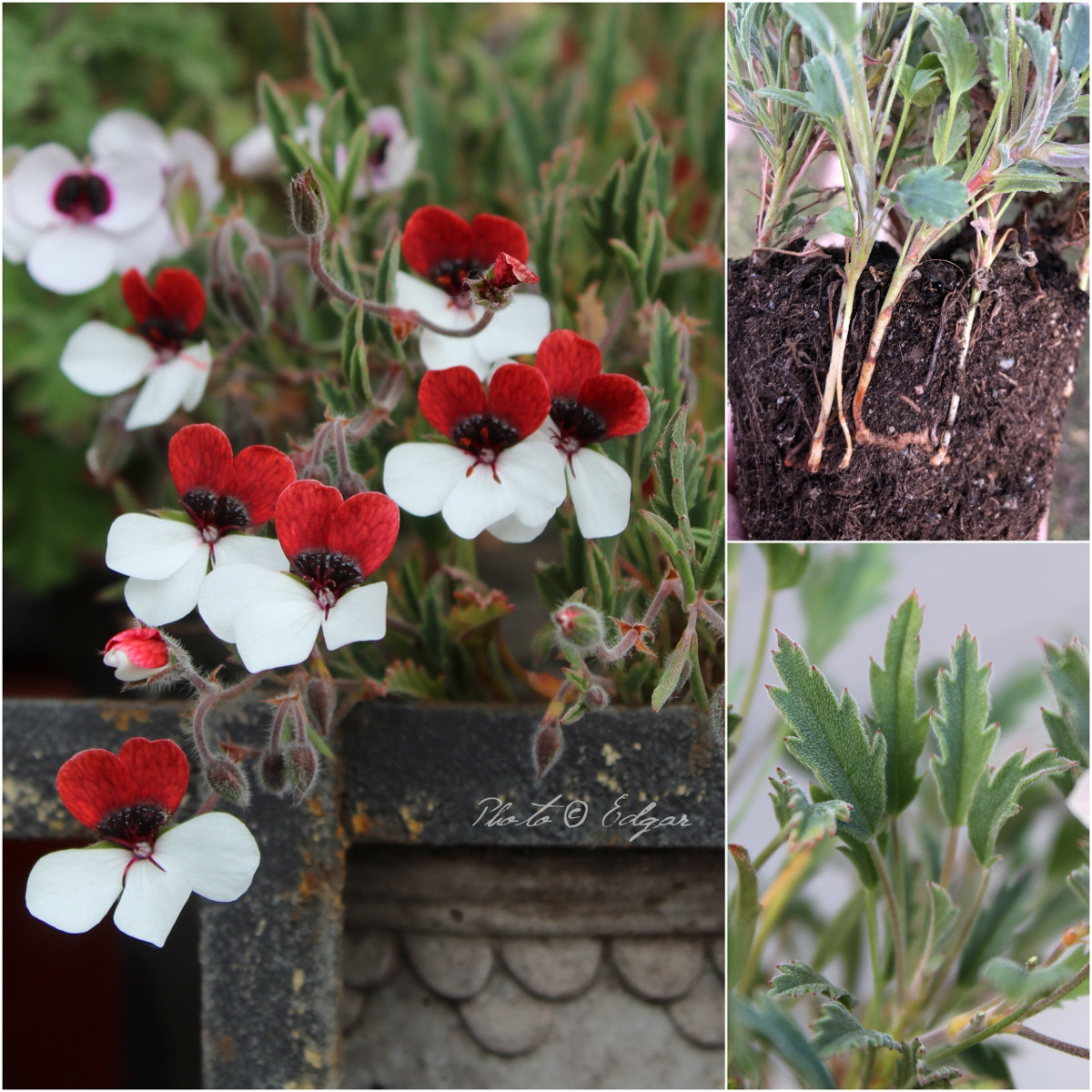
P. tricolor builds new branches from the root – something that I’ve never experienced its hybrids do.
I find P. tricolor easy to grow outside or in the greenhouse in summer, but a little more tricky to get it through winter inside under artificial light.
(This post was updated with more photos and text, April 2024.)
Subspecies of P. ovale with dark pink flowers.
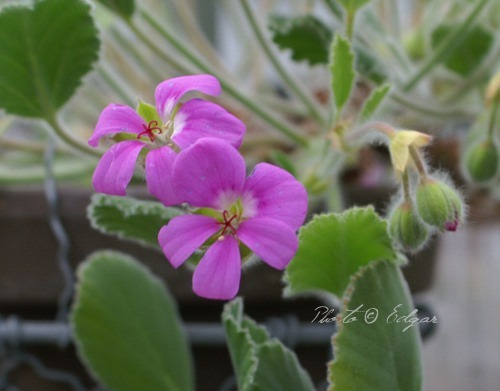
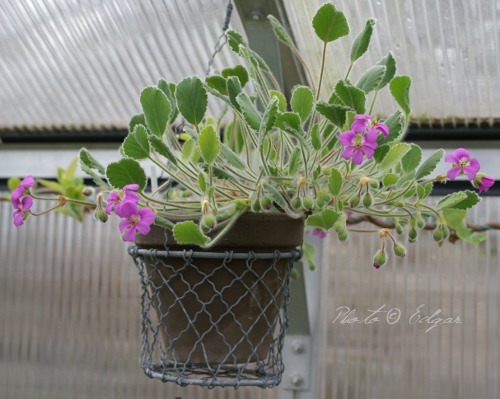
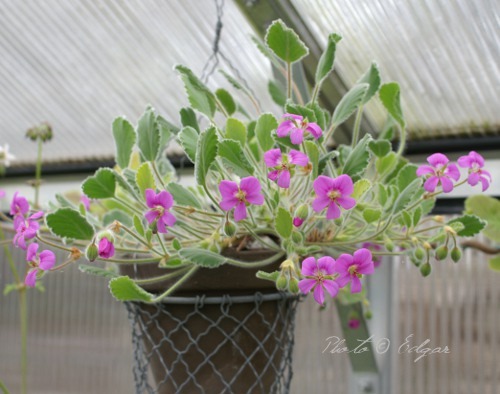
Photo © Edgar
The white form of P. tricolor is native to South Africa, around Eseljagpoort.
The plant I have, looks more like a hybrid.
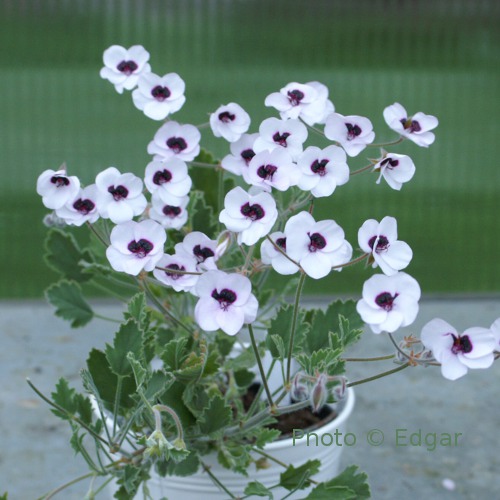
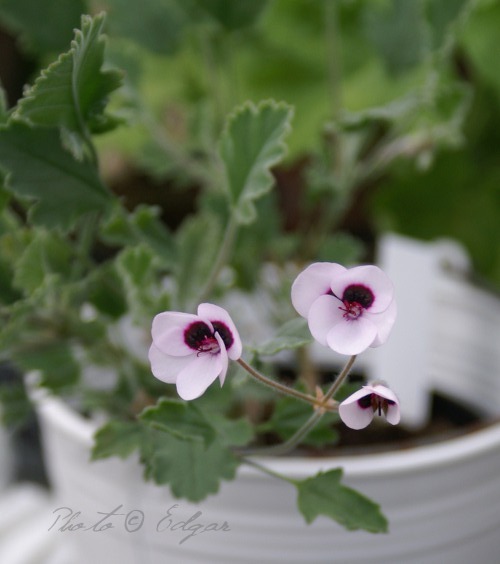
Updated June 2024.